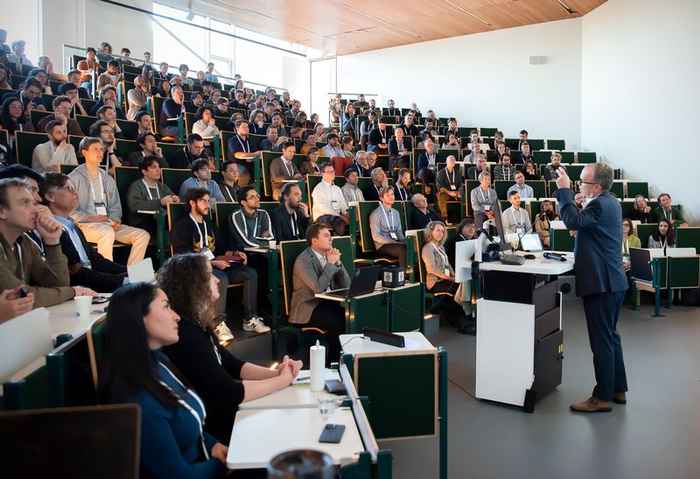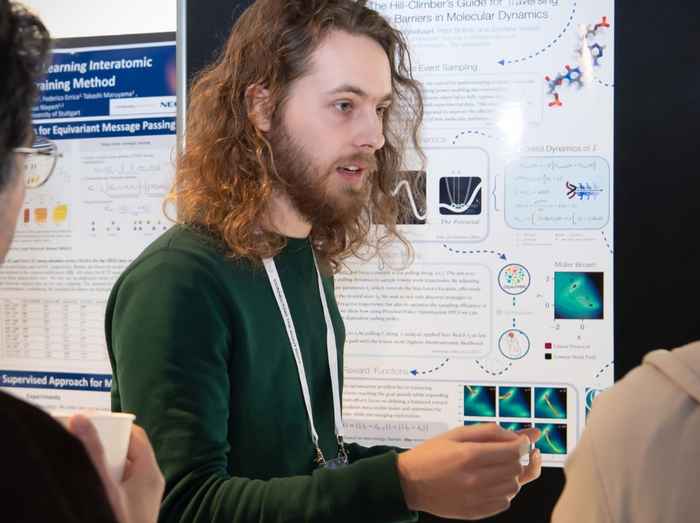Full house at ChemAI 2024
Closing a week of AI-powered chemical and material innovation
5 December 2024

The ChemAI symposium featured professors Nicola Marzari (EFPL, Switzerland) and Ross King (Chalmers University of Technology, Sweden) as keynote speakers. They spoke about the on-demand development of new, future-oriented materials (Marzari: “We do it with the aid of AI, but always from the perspective of atoms”) and automating scientific discovery through AI (King: “We are redefining the very nature of science”). The day attracted attendees from academia and industry who met in an informal atmosphere, sowing the seeds for new collaborations and partnerships. Innovative businesses and start-ups were offered the stage for a dynamic series of two-minute pitches. Several workshops shed light on specific subjects such as synthesis optimization and smart automation.

Young academics presented their research in posters, and finally a plenary session on "Taking Simulations Back to Reality" highlighted the new dynamics between AI, the lab and robotics, discussing the relationship between simulations and experimental validation.
ChemAI week
The ChemAI symposium concluded a full ChemAI week that featured webinars such as
- ‘Getting hand-on with open multi-modal foundation models for materials and chemistry’ by researchers from IBM Research;
- ‘Unlocking data in the Cambridge structural database for functional materials innovation’ by people from the Cambridge Crystallographic Data Centre;
- ‘Harnessing deep learning for drug discovery’ by Dr Francesca Grisoni (Eindhoven University of Technology).
The week was kicked off by the crash course ‘Elements of artificial intelligence’ for chemists (“everything you always wanted to know about AI but were afraid to ask”) by Dr Bernd Ensing and Dr Robert Pollice of the universities of Amsterdam and Groningen, respectively. Their enlightening introduction was attended by many researchers, in person at Science Park Amsterdam as well as online.
See also
The Amsterdam Chemistry Network provides a full recap of ChemAI2024, including a photo impression and powerpoint slides of the presentations.